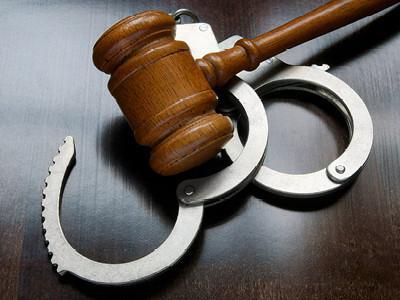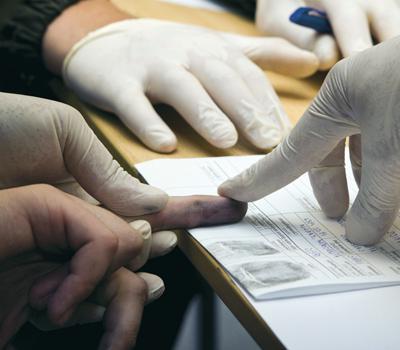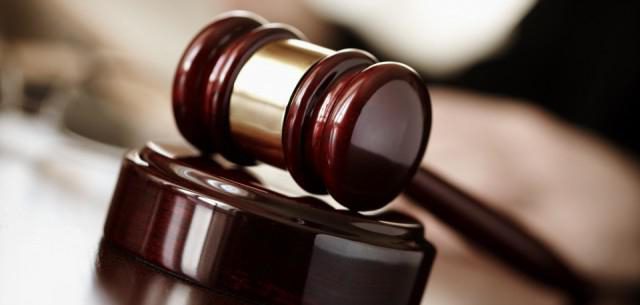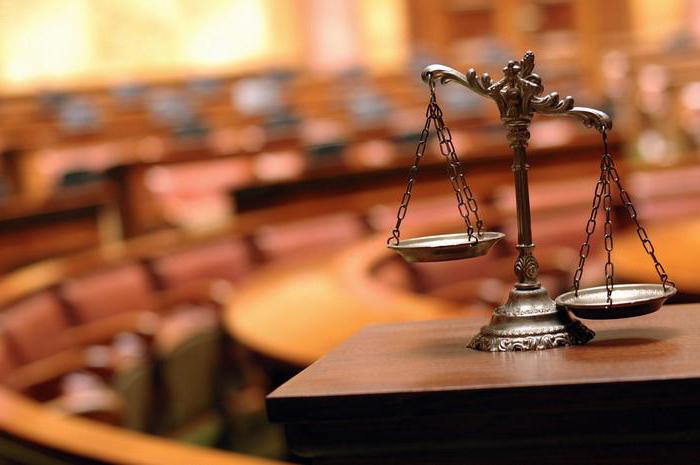Termination of the criminal case and criminal prosecution - the procedure in which authorized employees complete the proceedings in accordance with the rules established by the procedural rules. The collected materials are to be archived. 
Grounds for termination of criminal proceedings and criminal prosecution
An authorized employee who is in charge of the proceedings completes it after receiving sufficient evidence of circumstances that exclude the need / possibility of further proceedings or entail the release of the subject from liability. Termination of the criminal case and criminal prosecution - various procedural actions. In practice, they are often identified, which is not entirely true.
Normative base
According to article 55 of the Code of Criminal Procedure, criminal prosecution refers to procedural activities that are conducted by the prosecution. It aims to expose suspects / accused of involvement in the act. Ptermination of criminal prosecution may not always result in the completion of production. This can take place with active repentance or the death of one of the accomplices. Termination of Prosecution citizen, in accordance with Art. 28, part 1 of the CPC, is allowed in cases established by article 75 of the Criminal Code. The disposition of the norm is considered blanket because it contains references to other provisions of the law.
Conditions
When analyzing article 75 of the Criminal Code, you can determine the following grounds for termination of criminal prosecution:
- Small / medium gravity of a crime.
- The commission of the act for the first time.
- Active remorse.

The last condition is of the greatest interest. The essence of active repentance is the positive post-criminal behavior of the accused / suspect. It can be expressed in:
- The confession. It must be mandatory voluntary.
- Assisting in the disclosure of the act.
- Compensation for damage / other compensation for harm.
It is worth saying that these conditions are evaluative in nature. Since they are not clearly fixed in the legislation, in practice their application is very difficult.
Important point
The termination of criminal prosecution in connection with active repentance is often accompanied by a number of difficulties. In practice, the question often arises: is it enough for the subject to carry out one of the actions enshrined in part 1 of Article 75 of the Criminal Code, or is their combination necessary? Ideally, of course, to issue an act to end the prosecution or to terminate the criminal proceedings under Art. 28 of the CPC requires the presence of all components of active remorse. But in practice, their combination is extremely rare. Accordingly, active repentance is often recognized when a citizen was able to perform the objective part of the actions. For example, a decision to terminate a criminal case / criminal prosecution may be issued if a person confessed and actively contributed to the disclosure of the act, but could not compensate for the damage, as he has no funds for this. When implementing the instruments provided for by law, it is important not only to establish certain signs of active remorse, but also to correctly consolidate them, prove the facts, evaluate the timeliness and voluntariness of actions, causes and motives. 
Circumstances
Termination of prosecution may occur when:
- Finding out the citizen’s involvement in the crime.
- The approval of the act of amnesty.
- The conditions provided for in Article 24 of the Code of Criminal Procedure.
- Expiration of time limits. For example, one of the accomplices is a minor. In relation to him, the statute of limitations is reduced by half.
- The lack of consent of the court to open proceedings or to attract a person with official immunity in the status of the accused.
Subjects of law
Termination of prosecution - The prerogative of exclusively government agencies and officials conducting production. They can complete the investigation by simultaneously removing suspicion from the citizen (i.e., freeing him). The court is not an entity entitled to terminate the prosecution, since it is not at all vested with the authority to conduct it. He can only consider materials collected by authorized bodies during the investigation period. In this case, the court has the right to dismiss the case. The inquiry body has the authority to initiate proceedings, for which a preliminary investigation is mandatory. The corresponding provision is enshrined in article 157, in part 1. The inquiry body has the right to refuse to institute such proceedings, but cannot terminate the prosecution or the case in these cases. 
Rules of Procedure
Consider the procedure for ending the prosecution. Authorized employees carry out a number of mandatory actions. These include:
- The choice of grounds for closing the case.
- The issuance of the relevant act.
- Ensuring familiarization of the parties with the decision made, clarification to the participants of the proceedings of their right to appeal. If necessary, authorized persons take measures for the rehabilitation of the accused / suspects.
Nuances
The non-rehabilitating grounds on which the case is terminated must be established reliably. As for rehabilitating facts, they may relate to the lack of proof of guilt when all possible legal methods of collecting information have been exhausted. In particular, a citizen’s non-involvement in an act is not only the establishment of the fact that he is not involved in a crime, but also unidentified involvement. Termination of the case in connection with most non-rehabilitating circumstances is usually allowed with the consent of the suspect / accused. It must be obtained before the relevant act is issued. In some cases, the consent of the parent / representative of the minor or the victim (his representative) is also required. In the latter case, the need arises in the case of the closure of production in the reconciliation of the parties. 
Decree to terminate criminal prosecution
The issuance of a motivated act requires an indication of the outcome of the investigation. In particular, the document reflects:
- Description of established legally significant circumstances.
- Analysis of the collected information. References to case sheets and assessment of evidence are provided.
- Data on the subject involved in the proceedings in the status of a suspect / accused.
- The preventive or coercive measures used.
- Links to documents containing justification for the existence of suspicion, or an act on the involvement of a person as an accused. The exact wording of the charge should be indicated.
- Reasons for termination of prosecution (or production in general) and their evidence.
- Information on the consent of stakeholders.
In the operative part of the act, reasons are given for completing the prosecution / case, a decision on the abolition of coercive measures, the fate of the collected material evidence. There should also be a note explaining the rules of appeal.
Additionally
The decision on the completion of the case in circumstances providing for exemption from liability becomes effective after agreeing it with the head of the investigative department or the prosecutor. The latter, in any case, is sent a copy of the act.However, the issuance of a decision to terminate proceedings / prosecutions does not mean the end of the proceedings. An authorized employee / body is required to ensure the rights of participants to familiarize themselves and challenge the act and to rehabilitation. The decision to complete the proceedings may infringe on the interests of individuals. In particular, the victim may lose the right to access to legal proceedings, and the accused may lose the opportunity to rehabilitate himself. In this regard, each participant is guaranteed the opportunity to challenge the act in court or the prosecutor. 
Mandatory actions of authorized employees
To ensure the exercise of the right to legal proceedings and appeal of the decision, the investigator:
- Handing / forwarding copies of the act to the victim, suspect, civil defendant and plaintiff, accused.
- Submits production materials for review upon receipt of applications from the parties.
- Explains to the civil plaintiff, as well as to the victim, the right to submit claims in the framework of civil proceedings. It can always be implemented, except in cases where the termination of the case is due to the absence of a crime event.
- Explains to the accused / suspect the right to file an objection to the closure of the proceedings for non-rehabilitating circumstances.
- Explains the rules for contesting the decision.
- Takes measures to rehabilitate the accused / suspect. Their essence is, firstly, in recognition of the subject of the relevant law. In addition, a notice will be sent to the rehabilitated person explaining the rules for compensation for harm caused. The decision to recognize the relevant right is reflected in the decision to terminate the proceedings.
Voluntary post-criminal behavior
When making a decision to terminate the prosecution on the grounds enshrined in paragraph 1 of Article 28 of the Code of Criminal Procedure, the authorized employee is obliged to make sure that the suspect / accused committed positive actions of his own free will. Post-criminal positive behavior may be driven by someone else’s suggestion. However, the actions of a person should not be the result of exposure to persons conducting the proceedings, as well as a hopeless situation. 
Article 27 of the CPC
The rule also provides grounds for ending prosecution. In the first part, the possibility of completing the proceedings in the event that a person is not involved in the crime is fixed. The legality of the application of Part 1 of Article 27 is determined by a set of conditions:
- The crime event is proven. Otherwise, paragraph 1 of paragraph 1 of Article 24 of the Code of Criminal Procedure is subject to application.
- There is evidence that the person was not involved in the crime. For example, it may be an unrebutted alibi.
- All possible ways of collecting additional information confirming the guilt of a citizen have been exhausted.
- There are no other rehabilitative circumstances.
The adoption of a decision on the completion of the prosecution due to a person not participating in the crime does not mean the termination of the proceedings. The investigation continues until the facts to be proved are fully clarified, according to Article 7 of the Code of Criminal Procedure. If the subject who committed the acts is not found, after the expiration of the period allotted for the preliminary investigation, the proceedings are suspended on the basis of clause 1 of part 1 of 208 of the Code of Criminal Procedure.
Amnesty Act
It is published by the highest power structure and involves the exemption from serving a sentence or from the responsibility of entities that have committed certain crimes. The act may also provide for the mitigation of the imposed sanction or the removal of a criminal record. As indicated in part 2 of Article 27 of the Code of Criminal Procedure, the termination of prosecution in connection with the amnesty is not allowed if there are objections to this accused or suspect. In such situations, production is to be continued according to general rules.
Conclusion
As the Constitution indicates, no one can be convicted twice for one crime. Accordingly, a citizen cannot be held liable for a second time for an act, regardless of what the outcome of the proceedings was. In other words, it does not matter whether the subject was acquitted, convicted or the proceedings against him were discontinued by the court. A similar rule applies to the commission of crimes in other countries.